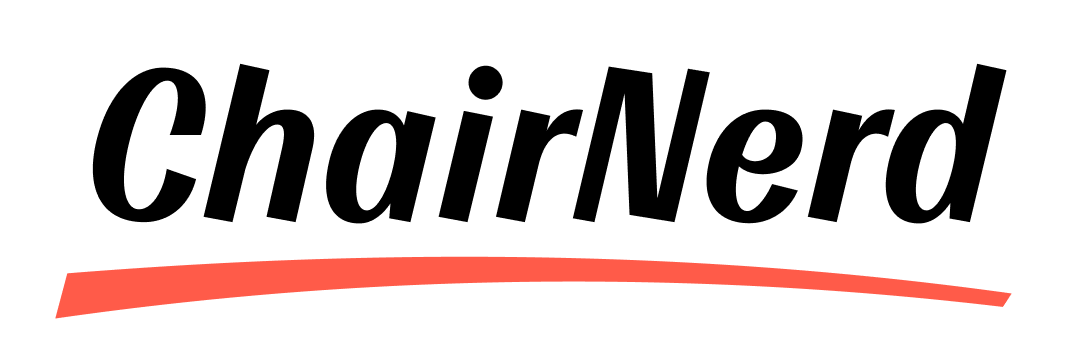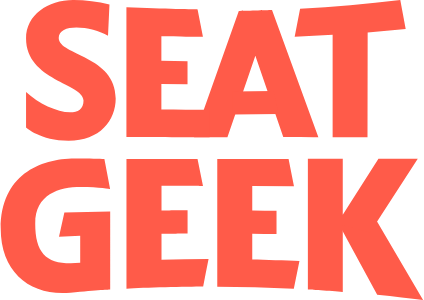At SeatGeek, our mission is to help you see more live events. While we are very proud of how easy it is to find and buy tickets for events you already have in mind, we believe there is quite a bit we can improve when it comes to discovering new events. This blog post discusses what we’ve tried in the past, a couple features we’ve recently launched, and our larger vision for improving event discovery moving forward.
The Past
Our first major attempt at improving event discovery goes back to 2011 when we launched a calendar-based “Pandora for Live Events” called Columbus. This feature recommended events based on your favorite teams and performers. Despite our best efforts, Columbus wasn’t the big hit we expected. It had low usage numbers and didn’t translate well into a mobile-first world, so we decided to sunset1 this feature several years ago.
The Present Recent Past
Since then, our event discovery experience has consisted of primarily:
- Search
- Location based recommendations
- The ability to keep track of your favorite teams and performers
Here is how we surfaced these features in our mobile apps not too long ago:
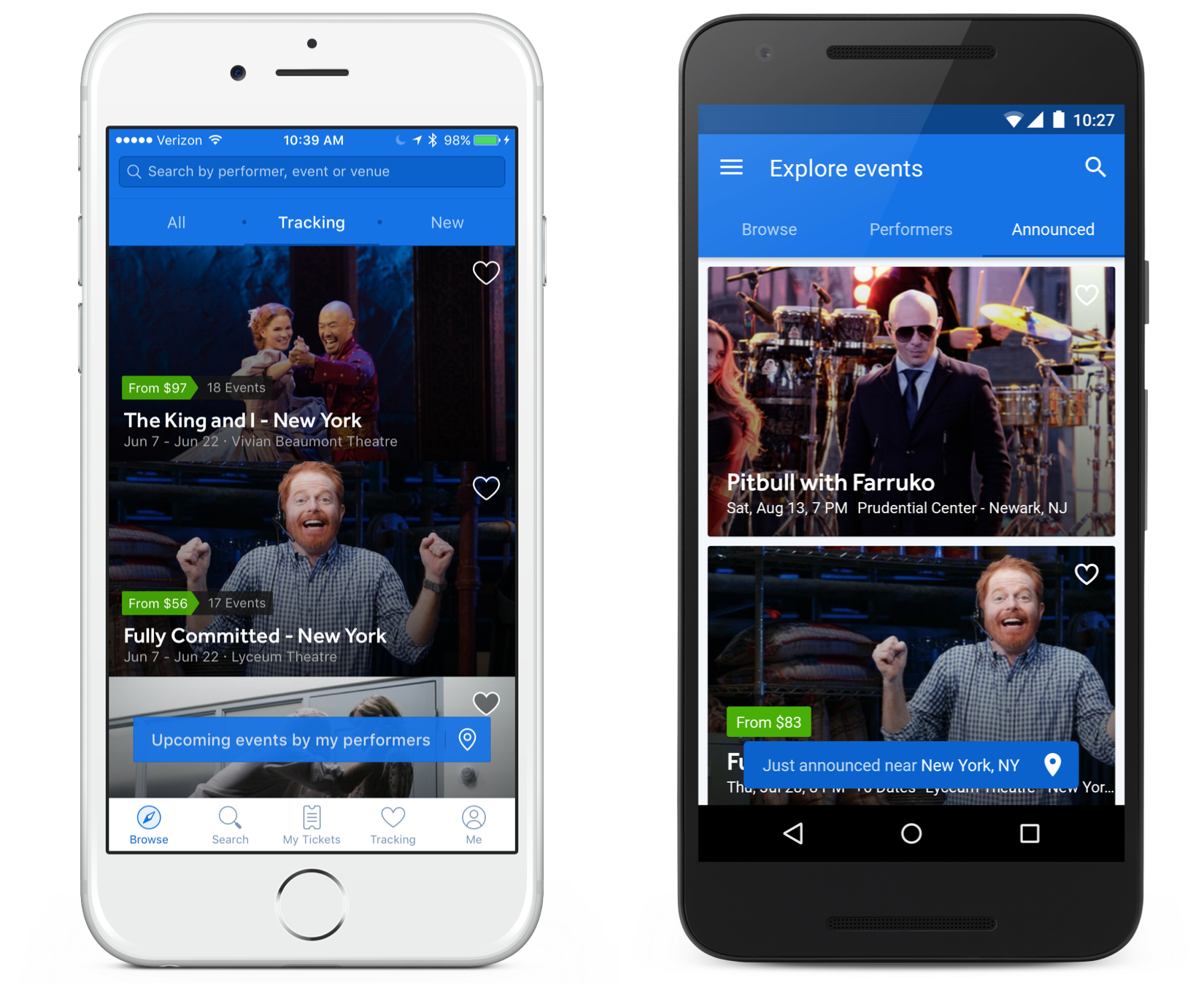
This version was useful when you had a specific event in mind or if you were a power user with dozens of tracked performers, but left a majority of people yearning for more. It wasn’t useful for answering more general types of questions such as:
- Are there any good comedy shows in New York tonight?
- What are the most popular shows in San Francisco?
- What are some affordable Broadway shows when I visit New York in 3 weeks?
- What rock concerts are playing in Los Angeles this weekend?
Said differently, this version was good at search, but had room for improvement for browsing and general discovery:

Where to Start?
Once we decided to focus on improving event discovery, we next needed to figure out where to start. The ideas were endless: social integrations, date filters, price filters, genre filters, semantic search, ability to sample songs, ability to upvote and downvote recommendations, a notifications tab, revamped onboarding, and countless others. In addition to all these ideas, there was an equally large number of ways to implement each idea. Do we want to have one feed similar to Facebook? Multiple lists on the screen like Netflix? A card approach that focuses on gathering preferences for every event? We knew we wanted to take an iterative approach where each feature stands on its own but also builds towards an ambitious long term goal2, but it wasn’t immediately clear where we should begin, how these items would fit together, and what exactly the long term goal would be.
Larger Vision
After carefully reviewing our options, we decided to guide our approach by looking at the relationship between types of user input (specific objective v general objective v little to no objective at all) with the different levels of personalization complexity required to return relevant results for a given feature.3
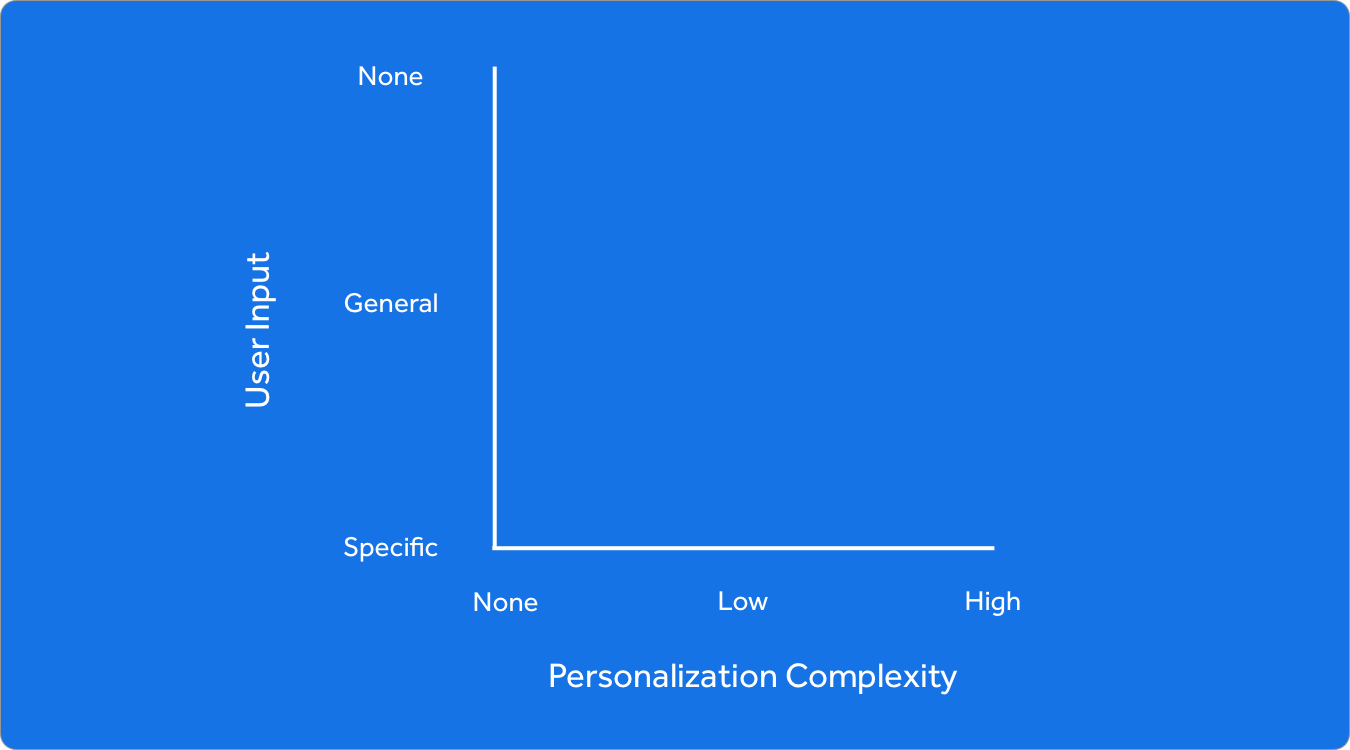
Search
For example, the bottom left of this chart describes search functionality, where there is a specific input (“Yankees tickets,” “Along Came Polly,” “Sweetgreen”) and a small amount of personalization needed to return a relevant result:

Browse
Moving up and to the right leads you to browsing features, where inputs are more general in nature compared to searching for a specific team or event. The more general nature of these inputs (“Comedy shows this weekend,” “Coffee in Nolita,” “A romantic comedy”) requires a bit more work to return relevant results.

List Based Discovery
Moving up and to the right again puts us in the discovery realm (“Find me something fun to do,” “Find me a good movie to watch right now,” “Find me a good place to eat”). For discovery based features, like Netflix’s homepage, there is no explicit input initially, which makes it a bit harder to return relevant results (in the case of Netflix both relevant lists and relevant shows or movies within each list). List based discovery offers many different types of recommendations, making it a bit easier to provide at least one relevant result.
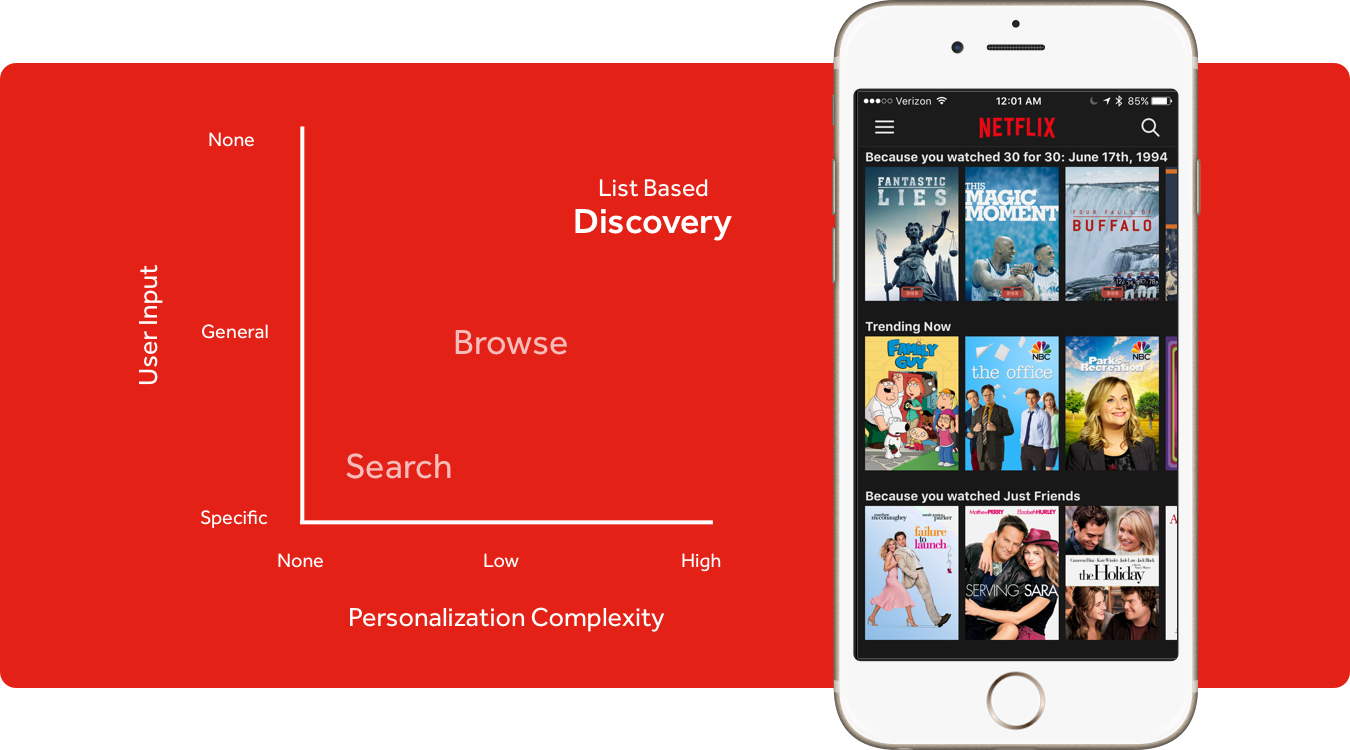
Feed Based Discovery
While it’s no easy task to return relevant list based recommendations, there’s another level of personalization complexity required to surface 1-2 highly relevant pieces of content just by opening the app, as is exemplified by Facebook’s News Feed and Spotify’s Discover Weekly. This requires a sophisticated personalization strategy to do well.
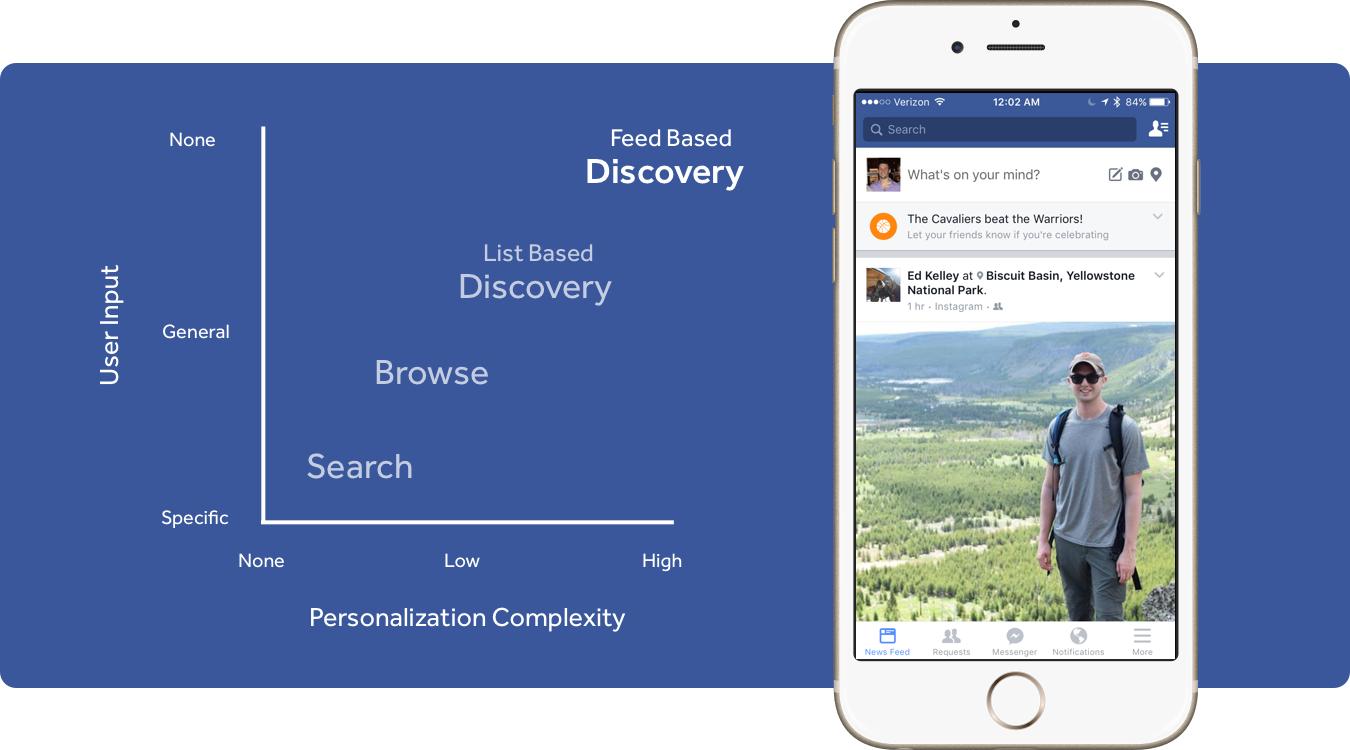
Looking at the relationship between user input and personalization complexity helped us answer the questions mentioned above related to where we should begin, how these items would fit together, and what exactly the long term goal would be. We’d start by focusing on the browse experience because it would require minimal personalization complexity. We’d then move towards a list based discovery experience, and ultimately aim for the ambitious goal of having a feed based discovery experience that would show people extremely relevant content simply by opening the app:
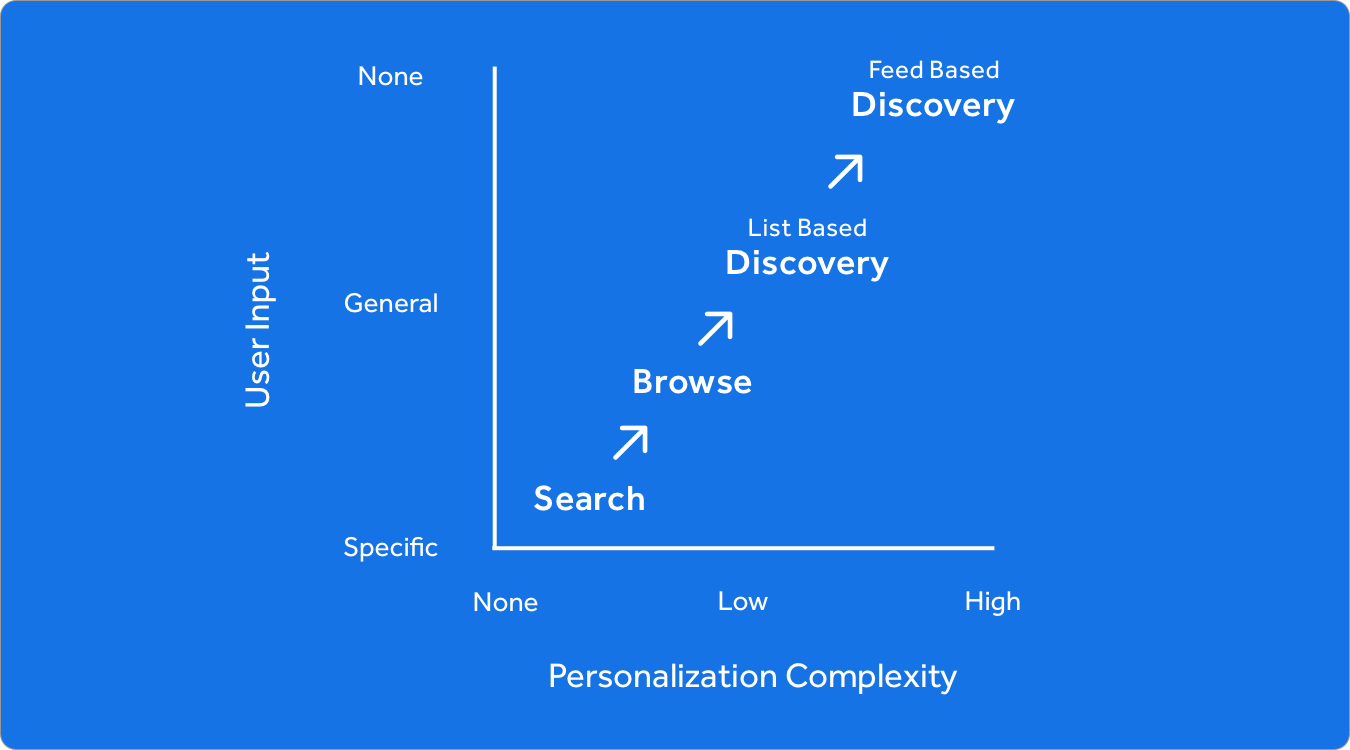
The Present
Based on this high level plan, we recently launched several new features that improve the search and browsing experience. These include
- The ability to find events for a specific date or date range
- The ability to browse and search by specific categories and genres (Music, Sports, Comedy, Theater, etc.)
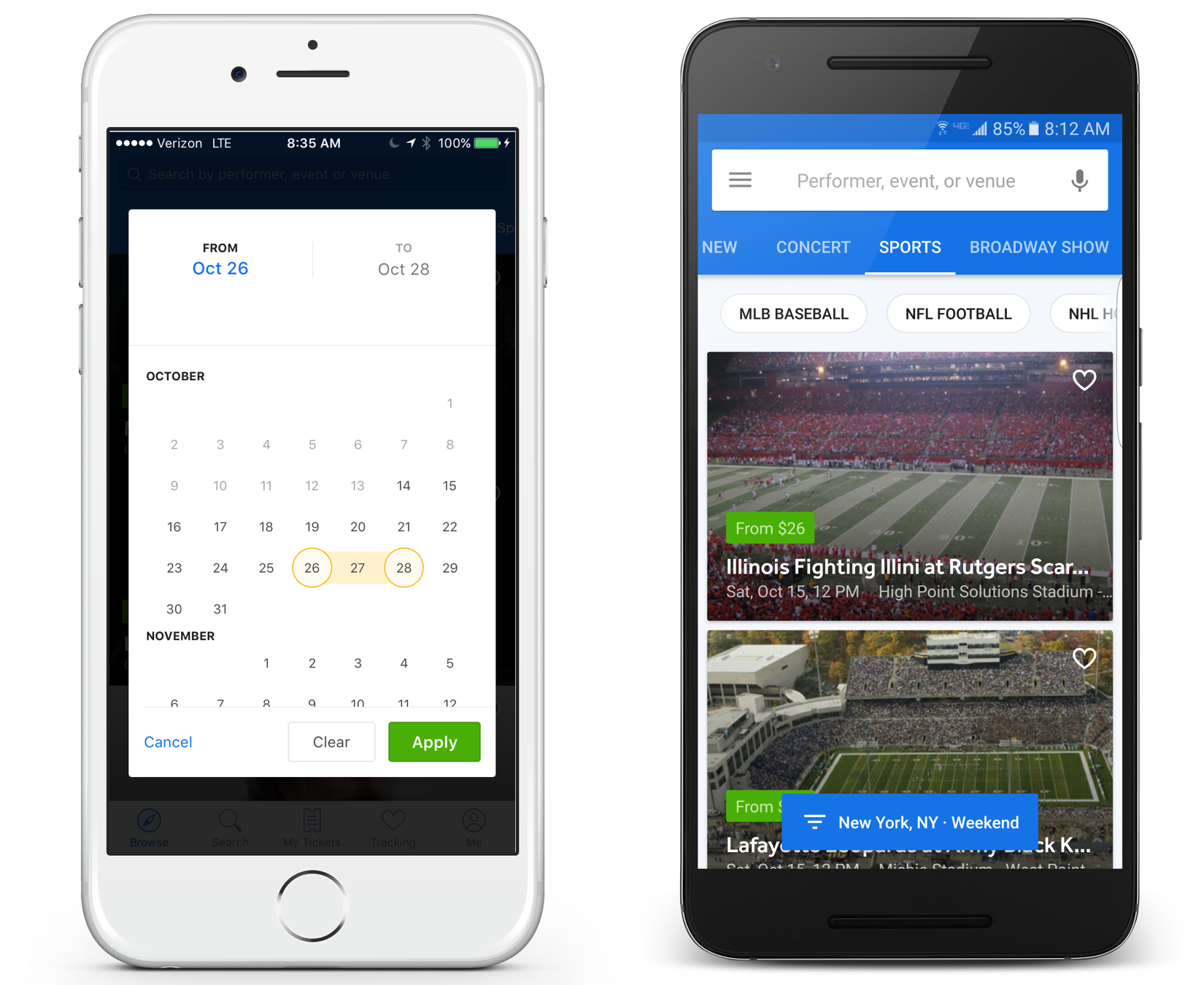
The Future
Over the next several months we are going to continue to improve the browse and discovery experience. While we have a general idea about what we think will work best, we plan to run experiments at every step along the way to understand what users actually find most useful. There are plenty of apps that provide great discovery experiences (Netflix, Facebook, Spotify), but that doesn’t necessarily mean their approach will translate well for the types of items people are searching for on SeatGeek. Here’s a preview of a couple future experiments:

We hope these new features help you find more events to attend with your friends! As always, we’d love to hear any feedback or suggestions you have to improve the app!
Help Us Make More Experiences
If you think these kinds of things are interesting, consider working with us on the iOS team at SeatGeek. Or, if you’re not an iOS Engineer, we have other openings as well!
Notes
2 Allowing us to test hypotheses early on and learn from our mistakes earlier as famously depicted in this great slide.
3 How hard it is to return relevant results given the user’s input.
